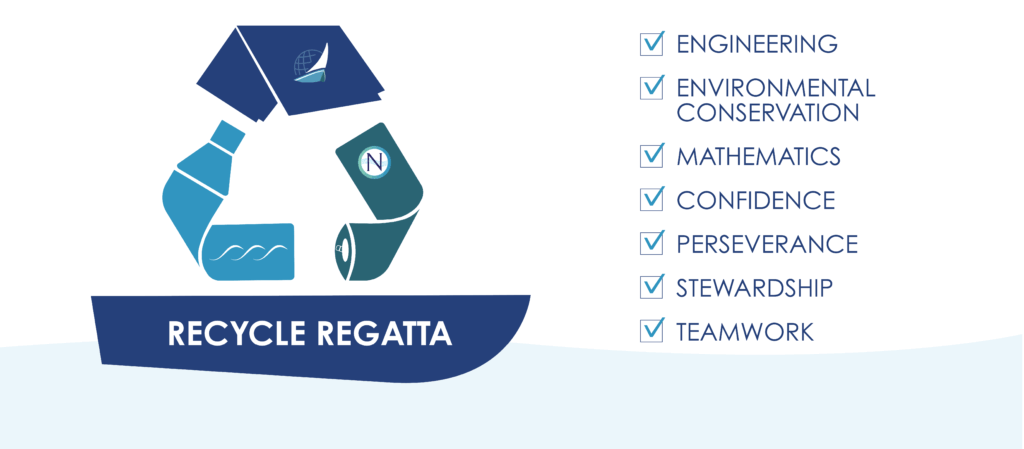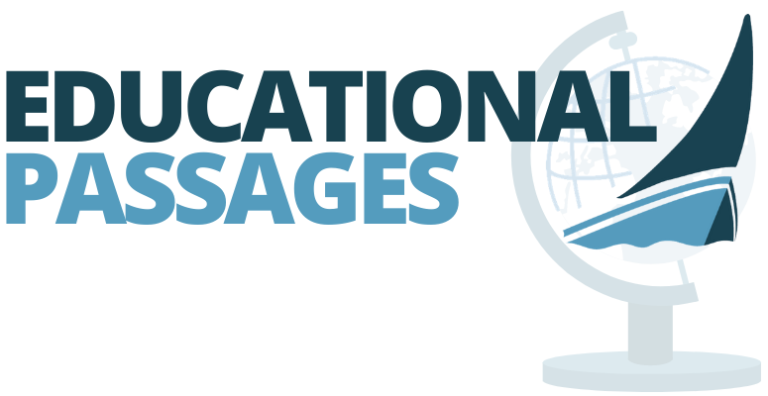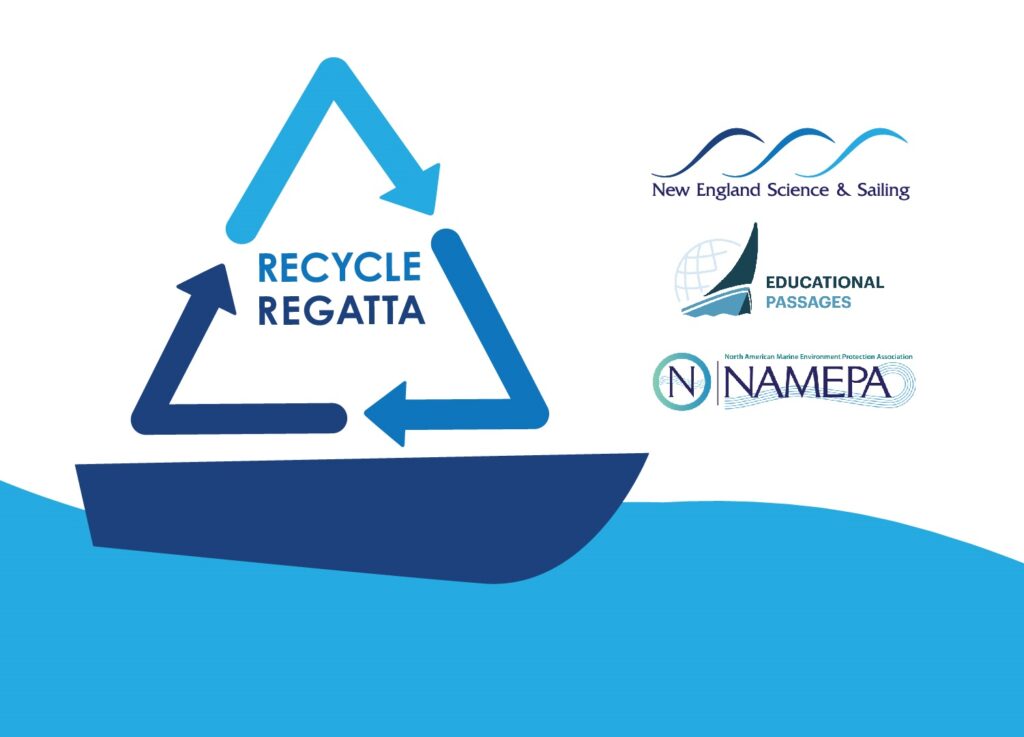2025 Recycle Regatta
6th Annual Recycle Regatta 2025 RESULTS ARE IN!
And the winners are…..
Miniboat Fleet (grades K-2)
-Most Seaworthy: Aaron
-Most Creative: Aaron
Opti Fleet (grades 3-5)
-Most Seaworthy: Ben
-Most Creative: Maverick, Seb, and Thayer
Hartley Fleet (grades 6-8)
-Most Seaworthy: Emily
-Most Creative: Cecilia, Olivia, and Sofia
Laser Fleet (grades 9-12)
-Most Seaworthy: Lainey
-Most Creative: Angelina
Thank you to all 6th Annual Recycle Regatta participants and congratulations to this year’s winners!
Hosted by: New England Science & Sailing (NESS), Educational Passages, and the North American Marine Environment Protection Association (NAMEPA)
Join us on Social Media:
Educational Passages: Facebook | Instagram | LinkedIn | X | YouTube
NESS: Facebook | Instagram | LinkedIn | X | YouTube | TikTok
NAMEPA: Facebook | Instagram | LinkedIn | X | YouTube
About the Recycle Regatta
Participants in grades K-12 apply the engineering method and become environmental stewards as they repurpose recyclables into seaworthy vessels! Master buoyancy, engineering, and physics obstacles to race your boat creations to victory.
The Recycle Regatta is a free, fun, hands-on competition for students anywhere! Build a model sailboat from recycled and repurposed materials and race to victory while discovering engineering, mathematics, sailing, buoyancy, and stewardship.
Classrooms, boating centers, and community organizations are also invited to host their own “Regatta” and submit entries.

Sign-up for Updates:
Recycling Practices
The Recycle Regatta aims to involve students in efforts of marine conservation in an enjoyable and innovative way. If this project sparks your interest in keeping our oceans clean, keep reading! It is estimated that eight million metric tons of plastic find their way into our oceans every year. Now, that is a lot of plastic waste! While the whole world is responsible for our oceans, each country must do their part to help clean our waterways. You may be asking what I can do, as one person, to help? Plenty! You’ve probably heard the phrase “Reduce, Reuse, Recycle” before, but there are more options to help you along your way into a waste-free life.
REFUSE The easiest way to help reduce waste anywhere you are is to simply refuse. When you are in the grocery store, you can opt not to use plastic produce or grocery bags. At a coffee shop, you can bring your own reusable mug instead of getting a single-use cup. However, sometimes plastic is unavoidable in our lives, and if that is the case, continue down the list!
REDUCE Receiving a single-use item is often not an option. For example, a gift or many options at the grocery store. If this is the case for you, try to be conscious of your plastic consumption and make changes where you can! In modern-day society, it’s not realistic for most people to be completely waste-free; however, any small changes will help the world we live in.
REUSE Some single-use items are easier to reuse than others, but if you stay conscious of the types of items you purchase, you may be surprised at what can be reused! For example, items such as jugs and jars, water bottles, paper, and cans can all be reused at least one time before they are recycled.
REPURPOSE A last effort you can make before you send waste off to the recycling bin is to repurpose items into something else. Is there something in your home that you don’t use anymore? Before you throw it away, try to think of a way you can repurpose it! A water bottle or even old boots can be used as planters. Old cans and glass bottles can be repurposed into storage cups or decor. Take any type of plastic and turn it into a sailboat to enter into the Recycle Regatta!
RECYCLE If none of the options listed above are an option, check out the recycling practices in your state! Each state has different regulations when it comes to recycling; some states have strict rules, while others are a bit more relaxed. Remember, if the state you live in isn’t recycling as much as others, you can still use the other four “R’s” to be conscious of your plastic or waste consumption.
Resources
Calculating Boat Speed
The Engineering Method
Marine Debris
Ocean Currents and Miniboats At Sea
Physics of Sailing
Buoyancy
Recycle Regatta Hosts

New England Science & Sailing (NESS) is a nonprofit, tax-exempt organization that uses sailing, marine science, powerboating, and ocean adventure sports as experiential learning platforms to increase K-12 academic outcomes. NESS educators teach in classrooms and on the water, using over 100 proprietary lesson plans tied to school standards, including the Next Generation Science Standards, Ocean Literacy Principles, and Collaborative for Academic, Social, and Emotional Learning standards. NESS is the only school partner program accredited by the New England Association of Schools and Colleges. For more information, visit NESSF.org.

Educational Passages is a 501(c)(3) nonprofit organization whose mission is to inspire ocean stewardship through unique global experiences. Participants connect through the building, launching and tracking of six foot long unmanned and satellite equipped “miniboats” that sail themselves to distant shores. To learn more about Educational Passages and its Miniboat Program, visit educationalpassages.org/start.

The North American Marine Environment Protection Association (NAMEPA) was officially launched in 2007. NAMEPA is a maritime industry-led organization of environmental stewards preserving the marine environment by promoting sustainable marine industry best practices and educating seafarers, students, and the public about the need and strategies for protecting global ocean, lake, and river resources. For more information, visit NAMEPA.net.


